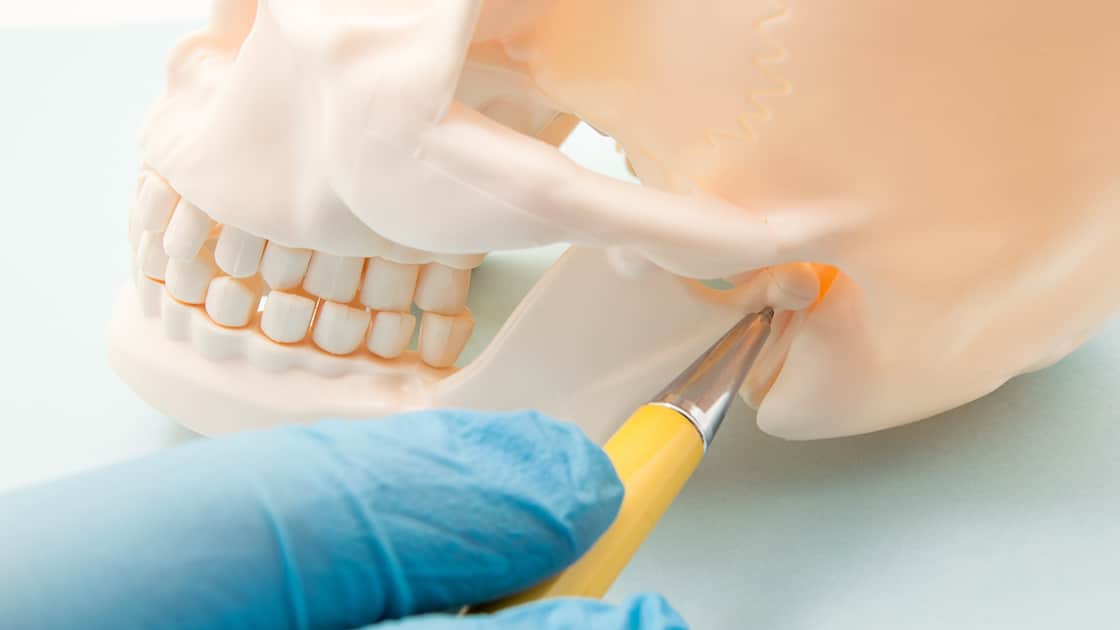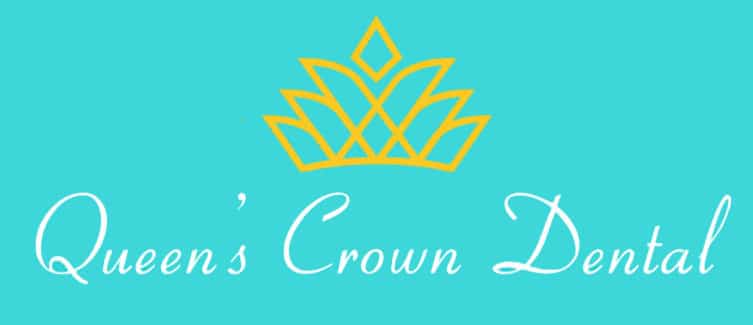
What are TMJ disorders?
The temporomandibular joint (TMJ) connects the jawbone to the skull. TMJ disorders can affect normal jaw function and are frequently intensified by stress, often causing discomfort in the cheek, jaw, or ear areas.
TMJ conditions fall into three main categories:
- Myofascial pain: Discomfort or pain in the muscles that control jaw function (grinding teeth can result in this type of TMJ disorder)
- Internal derangement of the joint: A possible indicator of a displaced disc, dislocated jaw, or injury to the condyle
- Arthritis: A degenerative inflammatory disorder that causes joint pain and stiffness
Signs and symptoms of TMJ disorders:
- Headaches
- Soreness in the cheek or jaw area
- Pain in or around the ears
- Facial pain
- Tight jaws
- Popping or clicking sounds when opening mouth
- Locking of the jaw
- Difficulty chewing
How are TMJ disorders treated?
To treat TMJ disorders, the cause must first be identified. In less severe cases, TMJ disorders can be treated with self-managed care (eating soft foods, using ice packs, avoiding extreme jaw movement) or nonsurgical treatments (anti-inflammatory medications, BOTOX® injections, stabilization splints).
We also create custom oral appliances that can alleviate stress on the temporomandibular joint (TMJ), and prevent further damage and pain. Typically worn at night, these removable acrylic appliances can help provide relief from temporomandibular joint pain and other effects of grinding the teeth.
What is TMJ Disorder?
TMJ stands for the temporomandibular joint, the place where the lower jaw connects to the skull. TMJ disorder is characterized by pain and limited range of motion in the jaw. There is often inflammation and swelling in the joint. It can occur due to overuse or strain on the muscles that control the movement of your jaw, often from teeth grinding/clenching or strenuous use. TMJ can also be caused by an injury to the jaw that affects the alignment of the joint. Arthritis is another possible cause, as it is characterized by pain and swelling in the joints.
Queens Crown Dental provides TMJ treatment in Honolulu, Hawaii. Call 808-526-2800 or contact us today to schedule an appointment.
Benefits of TMJ Treatment
- Pain relief. Treating your TMJ disorder provides long term pain relief, allowing you to stop taking pain medication.
- Restores range of motion. You’ll be able to open your mouth wider following treatment without pain or restriction.
- Allows you to chew food more effectively. You won’t have pain when you’re chewing once your treatment takes effect, allowing you to eat more of the foods you love.
- Prevents recurrence of TMJ disorder. When you receive professional treatment it can prevent your TMJ disorder from recurring.
Treatments for TMJ Disorder
- At-Home Treatment. The first steps you can take to treat your TMJ disorder can be done at home. Apply ice to your jaw, eat soft foods, rest your jaw, massage the muscles of your face, and take anti-inflammatory pain medication.
- Professional Treatment. If at-home treatments don’t work, contact us to schedule an appointment. We will evaluate your condition and provide additional treatment options such as steroid injections, a bite splint, or a mouthguard. Steroids promote healing, a bite splint keeps your jaw in alignment, and a mouthguard absorbs the force of teeth grinding and clenching.
- Surgical Treatment. If none of the above treatments are effective, surgery may be required to remove damaged tissue and restructure the joint.
Are You a Good Candidate for TMJ Treatment?
- Headaches
- Soreness in the cheek or jaw area
- Pain in or around the ears
- Facial pain
- Tight jaw
- Popping or clicking sounds when opening mouth
- Locking of the jaw
- Difficulty chewing
Why Choose Queens Crown Dental?
At Queens Crown Dental we carefully evaluate your TMJ to assess the situation and determine the best course of treatment. We only resort to surgery if there is no other option. Our goal is to relieve your symptoms and provide a permanent solution to your TMJ disorder, preventing it from coming back and causing repeated problems. We also believe in prevention, which is why we recommend mouthguards at the first sign of teeth grinding to prevent damage to your teeth and jaw.
Frequently Asked Questions
Is TMJ disorder the same as lockjaw?
These two conditions are very different, although they share some similar symptoms. TMJ disorder is caused by strain on the jaw. Lockjaw is a condition that occurs due to tetanus, a bacterial infection that releases a toxin into your system that causes the muscles to tense up. Even if your TMJ is so severe you can’t open your mouth, it doesn’t mean that you have lockjaw. Contact us right away if you have difficulty opening and closing your mouth.
Why does TMJ disorder cause ear pain?
Patients with TMJ disorder often think they have an ear infection because they feel pain in the area of their ear. The reason is that the temporomandibular joint is so close to the ear that the pain often resonates there. Severe swelling and inflammation can often spread far enough to put pressure on the ear canal.
How can wearing a mouthguard help TMJ disorder?
If you grind or clench your teeth at night while you sleep you may not be aware of it. Your dentist can tell when the effects start to show on your teeth, such as worn down enamel or cracks in your teeth. Mouthguards are designed to absorb the impact or force of the grinding to prevent damage to your teeth and minimize strain to your TMJ.
What is the difference between TMJ and TMD?
You may see both of these abbreviations used interchangeably. TMJ is the abbreviation for the temporomandibular joint. TMD is the abbreviation for temporomandibular disorder, when there is a problem with the joint. If you have pain, limited range of motion in your jaw, or any other symptoms listed above, you most likely have TMD.
To learn more, call 808-526-2800 or contact us today to schedule an appointment.


